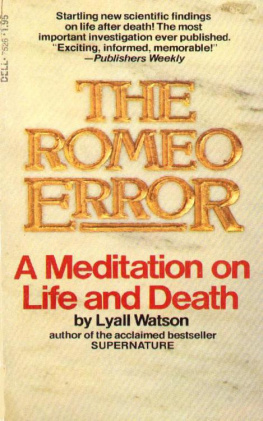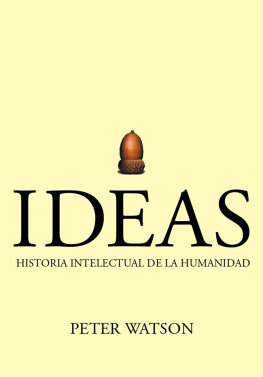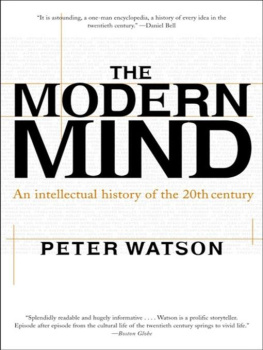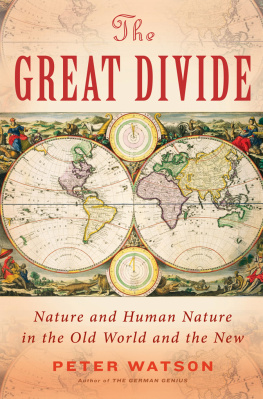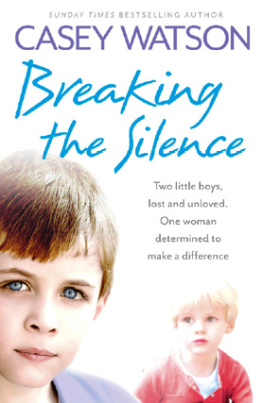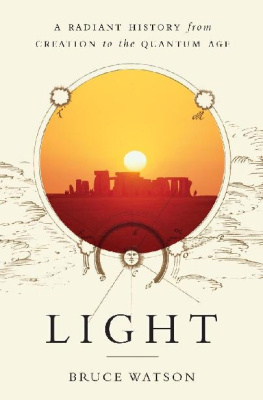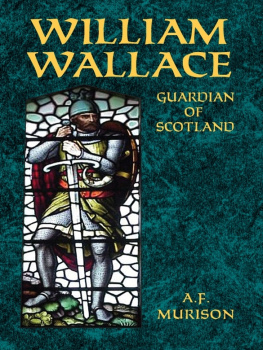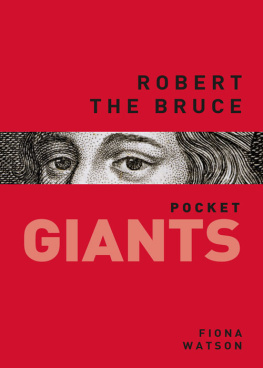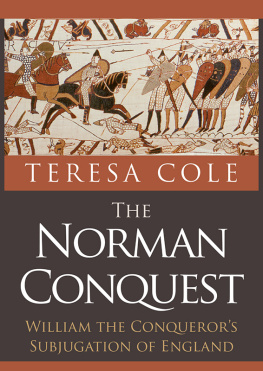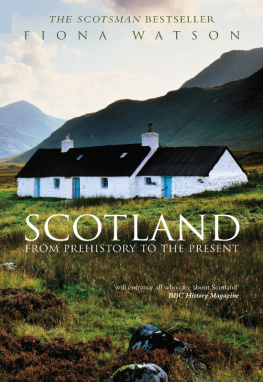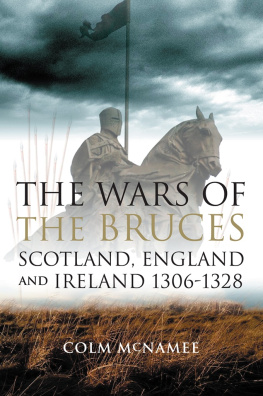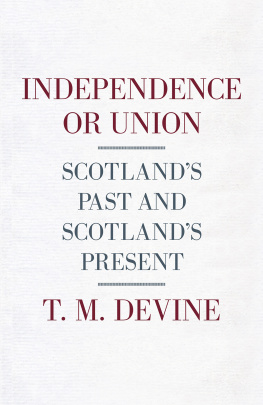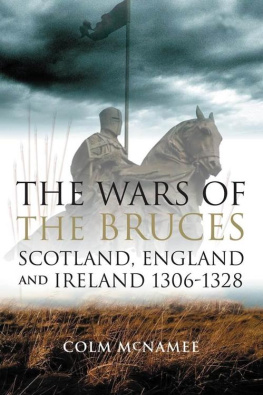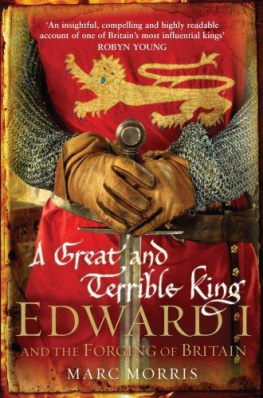
UNDER THE HAMMER:
EDWARD I AND SCOTLAND,
12861306

This eBook edition published in 2013 by
Birlinn Limited
West Newington House
10 Newington Road
Edinburgh
EH9 1QS
www.birlinn.co.uk
First published in 1998 by Tuckwell Press
This edition published in 2008
by John Donald, an imprint of Birlinn Ltd
Copyright Fiona Watson, 1998
The moral right of Fiona Watson to be identified as the author of this work has been asserted by her in accordance with the Copyright, Designs and Patents Act 1988
All rights reserved. No part of this publication may be reproduced, stored or transmitted in any form without the express written permission of the publisher.
ISBN: 978-1-904607-81-6
ebook ISBN: 978-1-907909-19-1
British Library Cataloguing-in-Publication Data
A catalogue record for this book is available from the British Library
To Mum and Dad
A small thank you for so very much

CONTENTS


ILLUSTRATIONS


TABLES


ACKNOWLEDGEMENTS

U P until a few years ago it was presumed with dismay (in some quarters at least) that the great era of Scottish medieval history was passing, not least with the retirement form the Scottish history departments of Edinburgh and Glasgow of two of the subjects most influential proponents, Geoffrey Barrow and Archie Duncan respectively. Fortunately, such premonitions of imminent catastrophe were rather premature, with a number of new appointments in most Scottish universities and a healthy stream of publications attesting to the continuing vibrancy of Scottish medieval history.
I was incredibly fortunate to have been able to study for my Ph.D under Archie Duncan. His own iconoclastic approach to anything which lesser mortals might regard as cast in stone provided the ideal training for a young and far too biddable would-be historian. By treating my views with respect, but at the same time requiring always that such respect be earned through the use of firm evidence and a coherent argument, he essentially taught me to think. His great gift has been to inspire and I am profoundly grateful to him.
I was also fortunate to have been in the Scottish History department at Glasgow University in the early 1990s. Though some of us may have gone on to become veritable pillars of academic respectability, some of my fondest memories are of the years spent in passionate debate, hard drinking and playing very bad football with Ewen, JR, Ronnie and Mackie. I learned a lot about seventeenth, eighteenth, nineteenth and twentieth century Scottish history from them; who knows, maybe they even learned some medieval history from me. Fortunately for our health, those days are over, but our friendships are certainly not.
Those days in Glasgow were presided over by Allan Macinnes, not least because of his skills in tactical football. Though I was never a bona fide neo-brutalist, Allans ability to keep me in gainful employment as a research assistant, as well as expanding my research horizons into landscape history, made the years of minimal career prospects both enjoyable and fruitful. I might have left academia long ago if it had not been for his loyalty and consider enduring jokes about medievalists and crystal balls a small price to pay for the privilege of having worked for him.
Despite the scarcity of jobs which might easily have created an environment of bitter competition, I have found my own generation of medieval historians to be most caring and supportive. My understanding of medieval history has been much improved by countless passionate discussions through the years I look forward to many more to come if Dauvit Broun, Michael Brown, David Ditchburn, Theo van Heijnsbergen, Ally MacDonald, Richard Oram and Matthew Strickland can continue to stand the pace. I would also like to acknowledge the slightly more mature influence of Norman MacDougall, who taught me as an undergraduate at St. Andrews. His patience, good sense and canny intellect, combined with an unfailing enthusiasm for the later middle ages, has served as a quiet inspiration over the years. I am not sure what conclusion to draw from the fact that we are also Archie Duncans first and last research students respectively.
The acquisition of a lecturing job a matter of months before my thirtieth birthday brought an end to a highly privileged, if rather insecure, life of research. There are considerable compensations. Most particularly, I have found that teaching the subject has brought me to see the woods, rather than the trees. I am therefore truly grateful to my students at Stirling University, who have rightly demanded brevity and clarity of me, and provided their own insights, during the past three years of Scotland in the Age of Wallace and Bruce. For that reason alone, I sincerely hope that the symbiotic relationship between teaching and research is preserved in any future overhaul of higher education.
I would also like to thank the department of history at Stirling they are truly the warmest and most supportive set of colleagues one could hope to work with. Most particularly, I owe a tremendous amount to George Peden, head of department in my first years at Stirling, who was not only responsible for the fact that medieval Scottish history is now taught at that university at all, but has also found the time (when, I do not know) to read various pieces of my work, including my thesis, and make most helpful and constructive comments upon it.
It would be most churlish not to acknowledge the part played in the creation of Under the Hammer by Ronnie Lee. Most obviously, I owe to him the title itself. However, I am also much the wiser for five years of non-stop historical debate, which was always hugely enjoyable and certainly eye-opening. I must thank him for his unfailing support of me as a historian during these years and for his incisive comments on a subject that is obviously of much less importance than Restoration politics.
There are a number of others who have been hugely influential on my own views on medieval history generally and this book in particular Michael Prestwich, who has provided much of the example behind the approach to this period in history, Sandy Grant and Ted Cowan. I also owe a huge debt to John and Val Tuckwell, whose contribution to the dissemination of Scottish history has been quite extraordinary in these past few years they have patiently, firmly, but always with an infectious sense of fun, teased the manuscript out of me. Please forgive me if I have missed anyone out.
Next page
![Watson Under the hammer : Edward I and Scotland, 1286-1306 [sic]](/uploads/posts/book/103524/thumbs/watson-under-the-hammer-edward-i-and-scotland.jpg)
